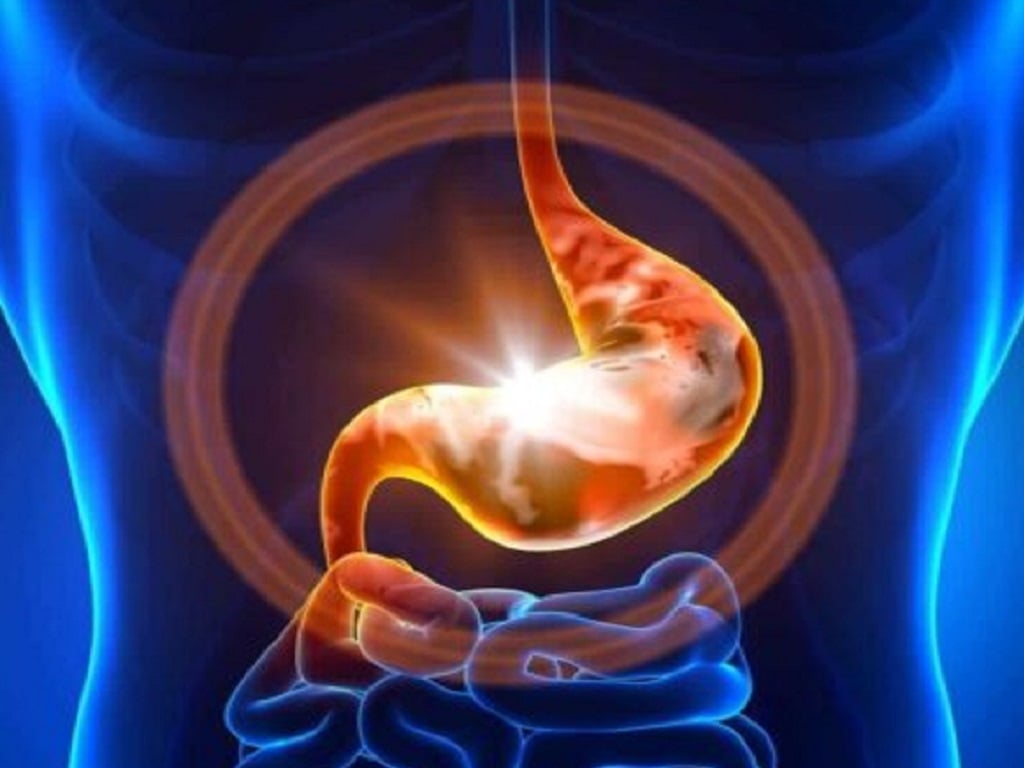Depending on the specific disease, the burning sensation in the stomach may be accompanied by bloating, indigestion, abdominal pain or nausea. In severe cases, the patient may experience internal bleeding in the stomach, even stomach perforation, according to the health website Medical News Today (UK).

A burning sensation in the stomach can be a warning sign of peptic ulcer.
A burning sensation in the stomach can be caused by the following health problems:
Gastroesophageal reflux disease
One of the most common causes of a burning sensation in the stomach is gastroesophageal reflux disease (GERD). This is a digestive disorder that occurs when the lower esophageal sphincter weakens. As a result, digestive enzymes and acids from the stomach flow back into the esophagus, causing a burning sensation and sometimes pain in the upper abdomen.
Other symptoms of GERD include nausea, bitter taste in the mouth, excessive salivation, hoarseness and coughing. GERD can be effectively controlled by lifestyle changes such as avoiding acidic, spicy, greasy foods as well as caffeinated drinks such as tea and coffee.
Additionally, losing weight, elevating your head while sleeping, and taking certain medications that reduce stomach acid may also help improve symptoms.
Peptic ulcer
Peptic ulcers are another common cause of heartburn. These ulcers form in the lining of the stomach, esophagus, or small intestine. They are often caused by the bacteria Helicobacter pylori or as a side effect of nonsteroidal anti-inflammatory drugs.
The most common symptom of a peptic ulcer is stomach pain. The pain may be dull and then get worse. Other symptoms include nausea, loss of appetite, and bloating. To treat peptic ulcers, doctors often use antibiotics to kill the Helicobacter pylori bacteria, drugs to reduce stomach acid secretion, and in some cases, surgery may be needed.
Gastritis
Gastritis can also cause a burning sensation in the stomach. This condition can be acute or chronic. It is often caused by infection, drinking too much alcohol, or taking nonsteroidal anti-inflammatory drugs for a long time.
Other symptoms of gastritis include nausea, vomiting, and loss of appetite. Some types of gastritis can lead to serious ulcers and even increase the risk of stomach cancer. To treat gastritis, people may be prescribed medications to control inflammation and reduce acid production, according to Medical News Today .
Source link






















![[Photo] National Assembly Chairman Tran Thanh Man visits Vietnamese Heroic Mother Ta Thi Tran](https://vphoto.vietnam.vn/thumb/1200x675/vietnam/resource/IMAGE/2025/7/20/765c0bd057dd44ad83ab89fe0255b783)










































































Comment (0)